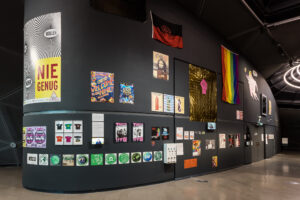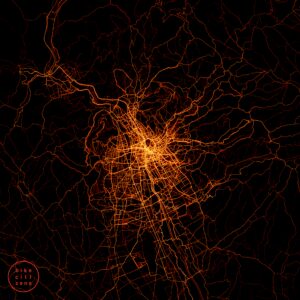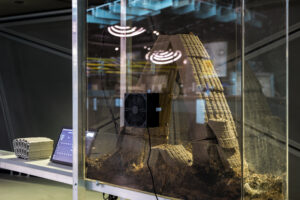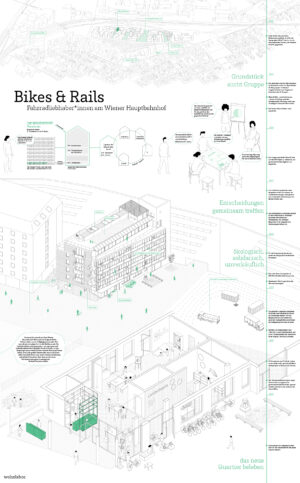The interdisciplinary and international research project HIVEOPOLIS aims to use technology to communicate with honey bees so that they can be better protected against environmental pollutants, climate change and also their natural enemies. This requires an in-depth understanding of the bee colony, since any intervention – no matter how small – could jeopardise their coexistence. How do they organise themselves? How do they solve problems? How do they regulate processes in the hive? Only after the animals’ communication and behaviour have been deciphered can artificial signals – sound and vibrations, temperature changes, air movements, and so on – be used to convey information to the bees, such as warning that a field has just been fertilised. Bees play a key role in many ecosystems, but their numbers are steadily declining. It is therefore becoming increasingly important that we enter into dialogue with them.
HIVEOPOLIS. Beehives of the Future, from 2019
Artificial Life Lab/Institute of Biology/University of Graz
Videos: Artificial Life Lab
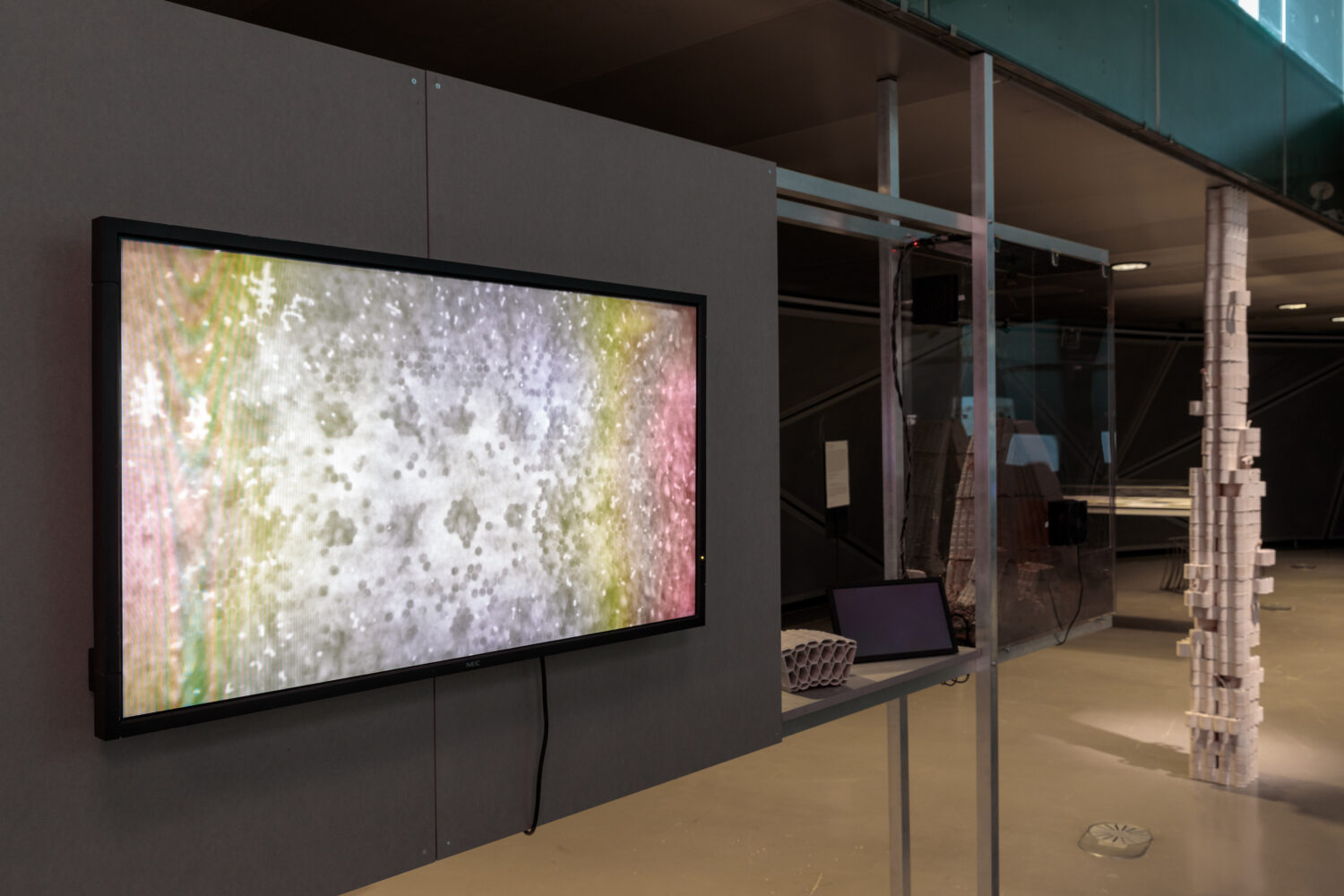
Bildunterschrift
Project partners: École polytechnique fédérale de Lausanne,
Université libre de Bruxelles, Free University of Berlin, Pollenity, Latvia University of Life Sciences & Technologies, Humboldt University of Berlin
Funded by EU Horizon 2020 FET Programme



